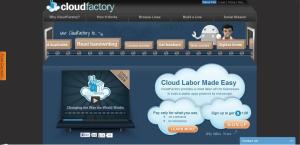I had a teacher, Sandra Ortiz-Del Valle at the Bayard Rustin High School for the Humanities who had a lot of influence on me.
I got to know about Ms. Ortiz (as she was fondly known in high school) through my older brother. Later on, I was part of her Weight training class and got to know her more. She always showed tough love to her students. She treated me no differently. She held each of us accountable to come to class and do our tasks. She used to joke and ask me and my brother (we had very good academic records) what we had for breakfast so she could prescribe the same dose of diet to her kids.
In my junior year, I joined the Varsity basketball team and Ms. Ortiz also became my basketball coach. At practice, she was focused, disciplined and decisive. Although I was passionate about playing basketball, I was still a beginner in comparison to other varsity players in the team. The varsity players knew that I had made it to the team because of my grades (you needed to have a certain grade to make it to the team). Ms. Ortiz was crucial in helping me feel comfortable in the team and also had my back. She even paired me with the best player on our team so we can help each other out. I would help the best player on the team on his classes during lunch period and he would help me hone my basketball skills during practice. It was a great learning experience for me and all credit goes to Ms. Ortiz for masterminding that partnership.
Besides guiding me on the basketball court, Ms. Ortiz was instrumental in helping me develop into a mature young man and not get distracted to the environment of a NYC public school. In one instance, I walked into the basketball gym with my basketball shorts hanging below my waist. She quickly disciplined me and told me to pick up my shorts. I quickly did what she said as I had a lot of respect for her. She reminded me that “hanging my shorts like that” was not who I am and always kept me in check.
Ms. Ortiz was a gem in my high school days and her tough love led me to the right direction in life. She was more than a weight training teacher or basketball coach to me. She shaped me into a focused and disciplined young man and I took those values and leadership skills into college and beyond. Thank you Ms. Ortiz.


